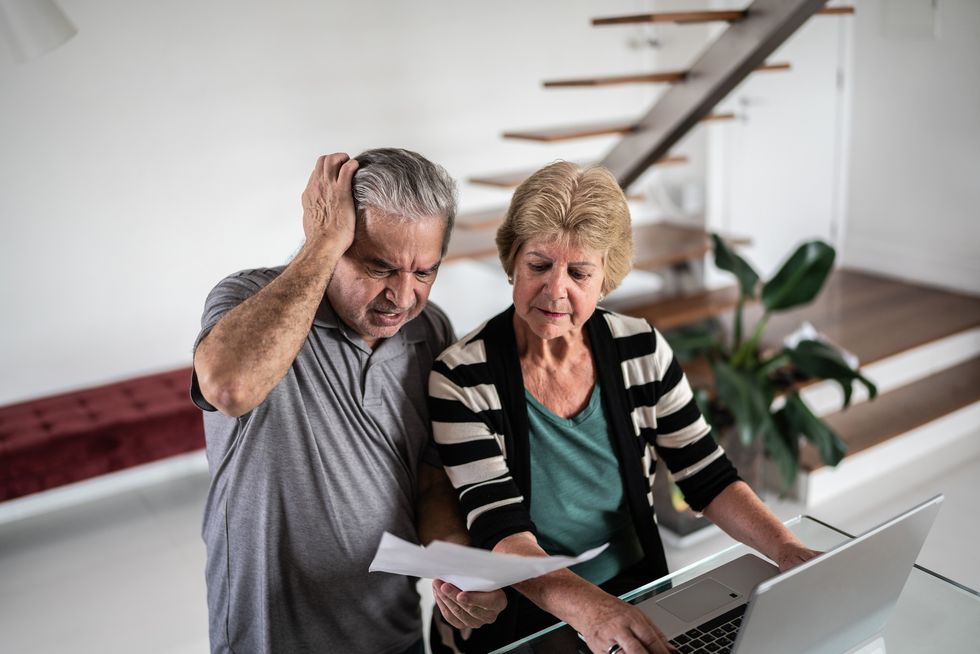There will be an extra 850,000 pensioners paying income tax by 2028 than this year, taking the total number to 9.35 million – the highest on record
Don't Miss
Most Read
Trending on GB News
With more retirees being hit by fiscal drag, a GB News reader has warned the Conservative Government that they have lost his vote in the General Election due this year,
The frozen income tax thresholds will leave the average taxpaying pensioner £1,000 worse off by 2027/28, which is a collective hit of £8billion, analysis from the Resolution Foundation has found.
The freeze means that every year, more and more older people are having to pay the levy as their income from the state pension and private pensions increases along with inflation, but their personal allowance remains the same.
Without the freeze, the personal allowance would have risen to £15,220 in 2024/25 and up to £15,990 in 2027/28, analysis suggests.
A GB News reader told us about their ‘disappointment’ about the Government’s ongoing freeze, stating they have let pensioners down.
They said: “As a pensioner I am extremely disappointed with the National Insurance reductions. They do nothing for pensioners. Every pound of increase I get on my pensions is taxed. Effectively reducing my disposable income!

850,000 pensioners are set to pay income tax
“My private pension only increases by a maximum of 3.5 per cent which has been below inflation for the past years, so another blow to my disposable income.
“The government has let pensioners down drastically and the freeze on personal tax allowances till 2028 will continue to make matters worse for me.
“I wrote to my Conservative MP after the mini-Budget about this and have been ignored, so won't be voting Conservative again, and will vote for another candidate to penalize them.”
The personal allowance has been set at £12,570 until 2028, even as the triple lock inflates the state pension.
This freeze on tax thresholds means 850,000 more pensioners will be dragged into paying income tax within the next four years.
A GB News reader complained the 8.5 percent state pension is “pointless”.
They said: “The Government swaps its policy on the state pension to suit itself.
“An 8.5 per cent increase is somewhat pointless to myself and numerous others as my small occupational pension when combined with the state pension already takes me into the taxation band, so any further increase will only result in me paying more tax and nullifying any additional monies.”
Another reader said: “When I retired, I received approx £250 per calendar month, now I only £185. What will I get after April? The eight per cent will go down to about five per cent.
“So where is the cost of living for me? Not keeping up at all. Think it’s time to bring pensions in to the 21st century from a getting up harder each year.”
From next week, pensioners will receive an increase in the UK state pension thanks to the triple lock pledge.
Those receiving the full new state pension will get £221.20 a week or £11,502 a year and those receive the full basic state pension will get £169.50 a week or £8,814 a year.
Currently, 8.5 million pensioners pay income tax. However new research by the House of Commons Library found that the frozen personal allowance means 1.6 million more retirees will pay the tax than if the threshold had tracked inflation since 2021.
By 2028, the total number of pensioners paying income tax would have hit 9.35 million which is the highest on record, and nearly double the 4.9 million when the Tories came to power in 2010.
LATEST DEVELOPMENTS:
Sarah Olney, the Liberal Democrat party’s Treasury spokeswoman, said: “These stark figures reveal the stealth tax bombshell facing pensioners under this Conservative Government.
“Older people who have worked hard and contributed all their lives are now being clobbered with years of unfair tax hikes.
“Jeremy Hunt’s pensioner-punishing Budget will not be forgotten come the next election.”
A Treasury spokesperson previously said: “Our older population have the right to security and dignity in retirement which is why this year we provided the biggest ever cash increase to the state pension, a 10.1 per cent rise, which comes on top of extra direct cash payments worth up to £1,350 each to support with cost of living challenges and protection from rises in energy bills.
“We have taken three million people out of paying tax altogether since 2010 through raising personal thresholds, and the Chancellor has said he wants to lower the tax burden further but sound money must come first.”








